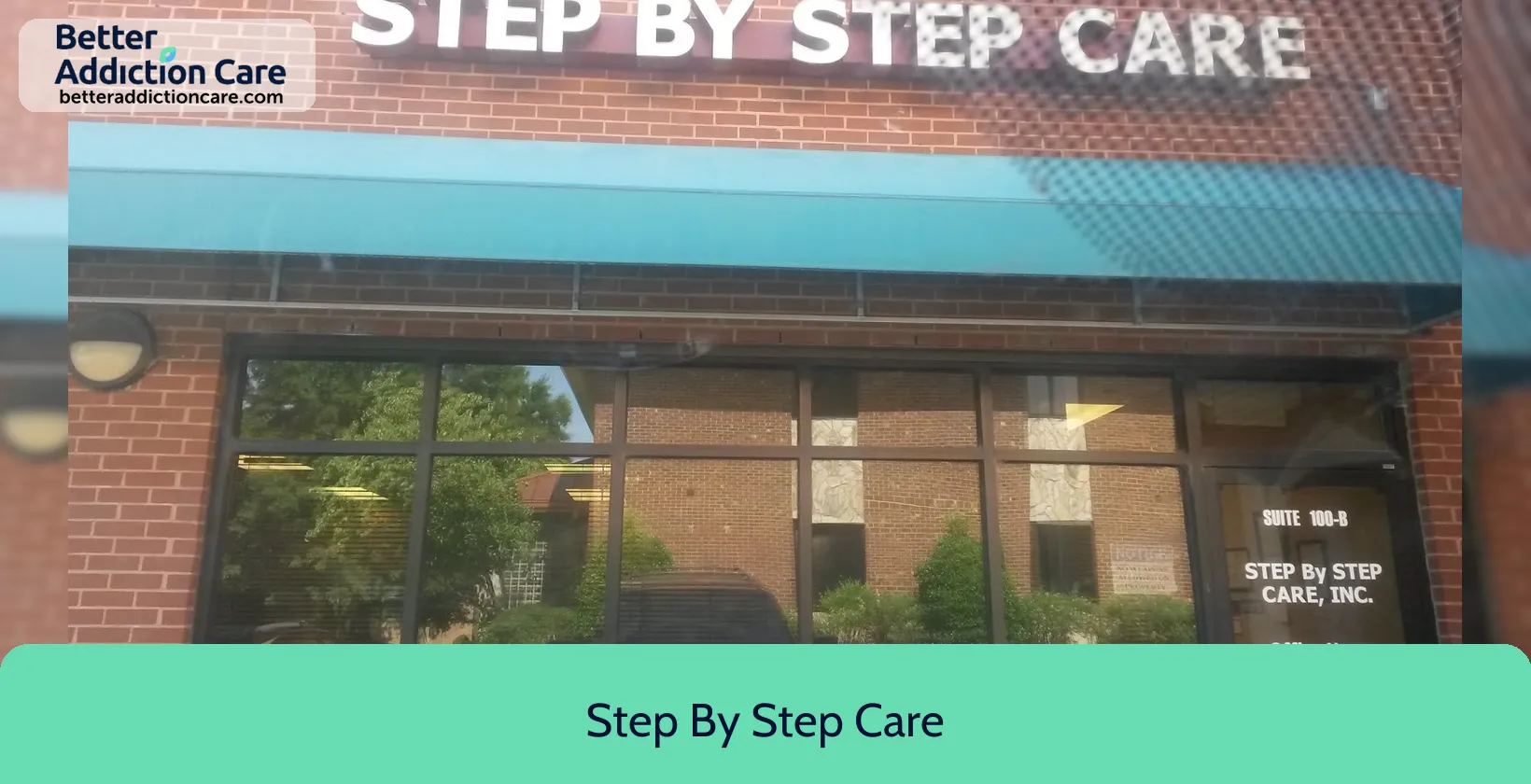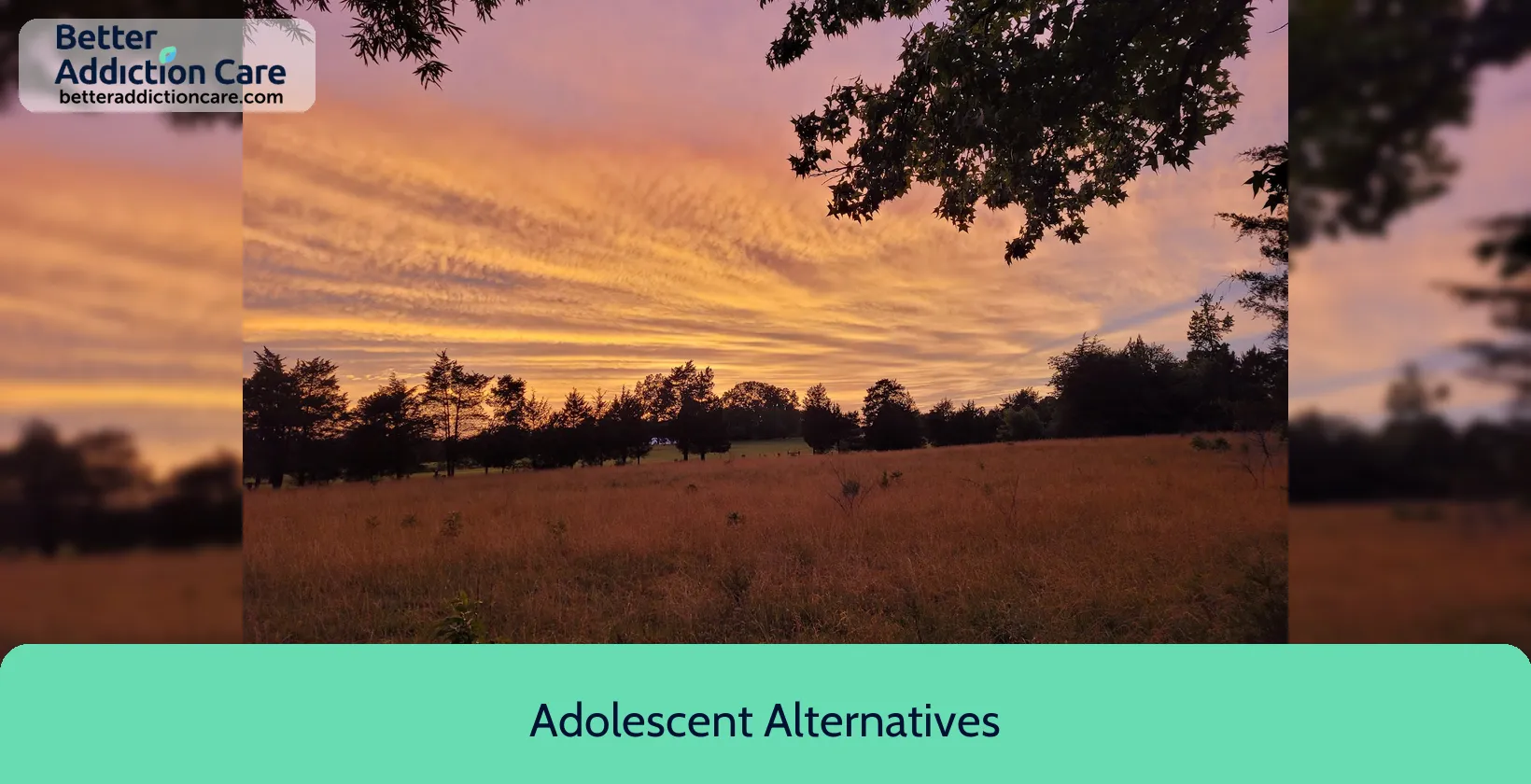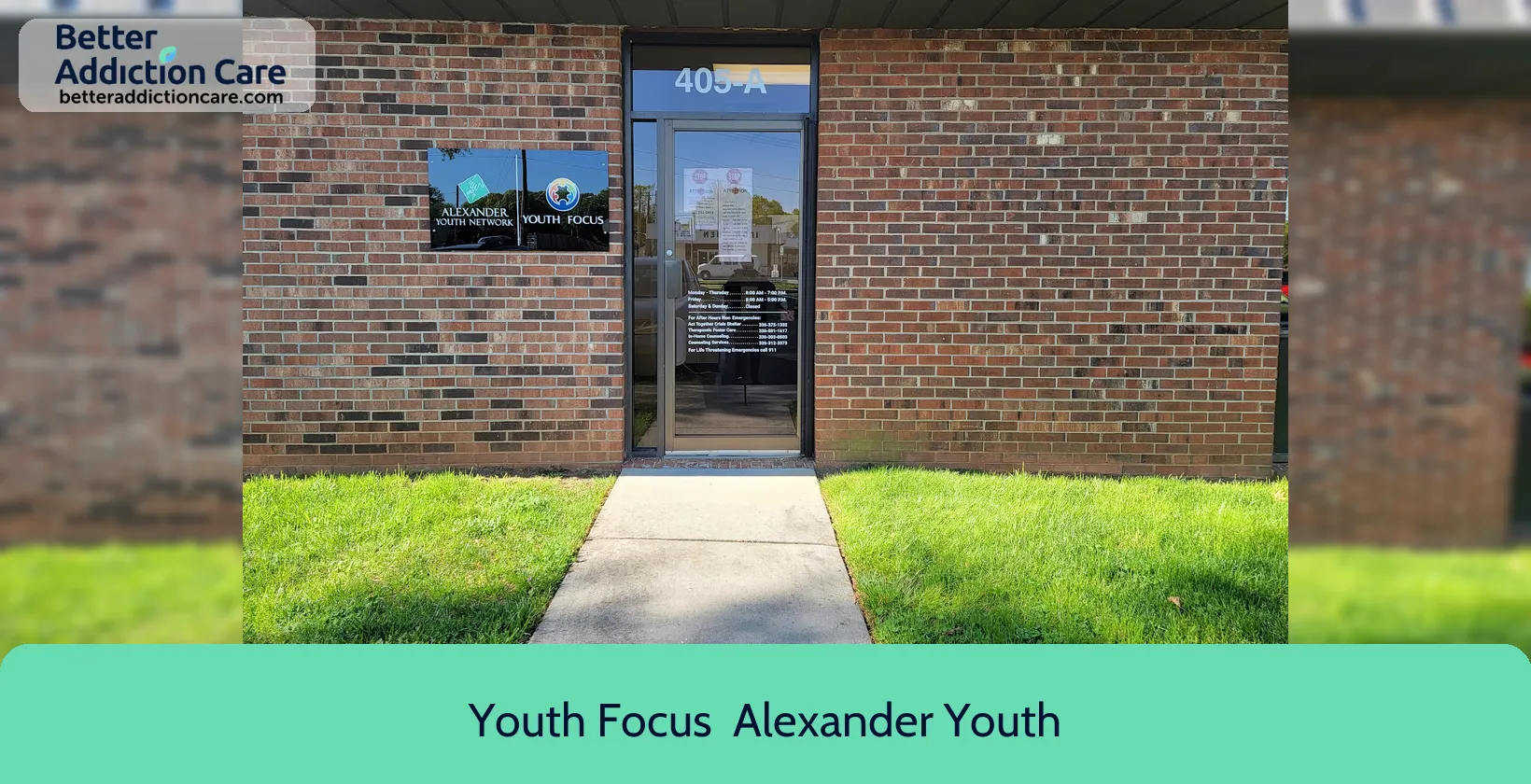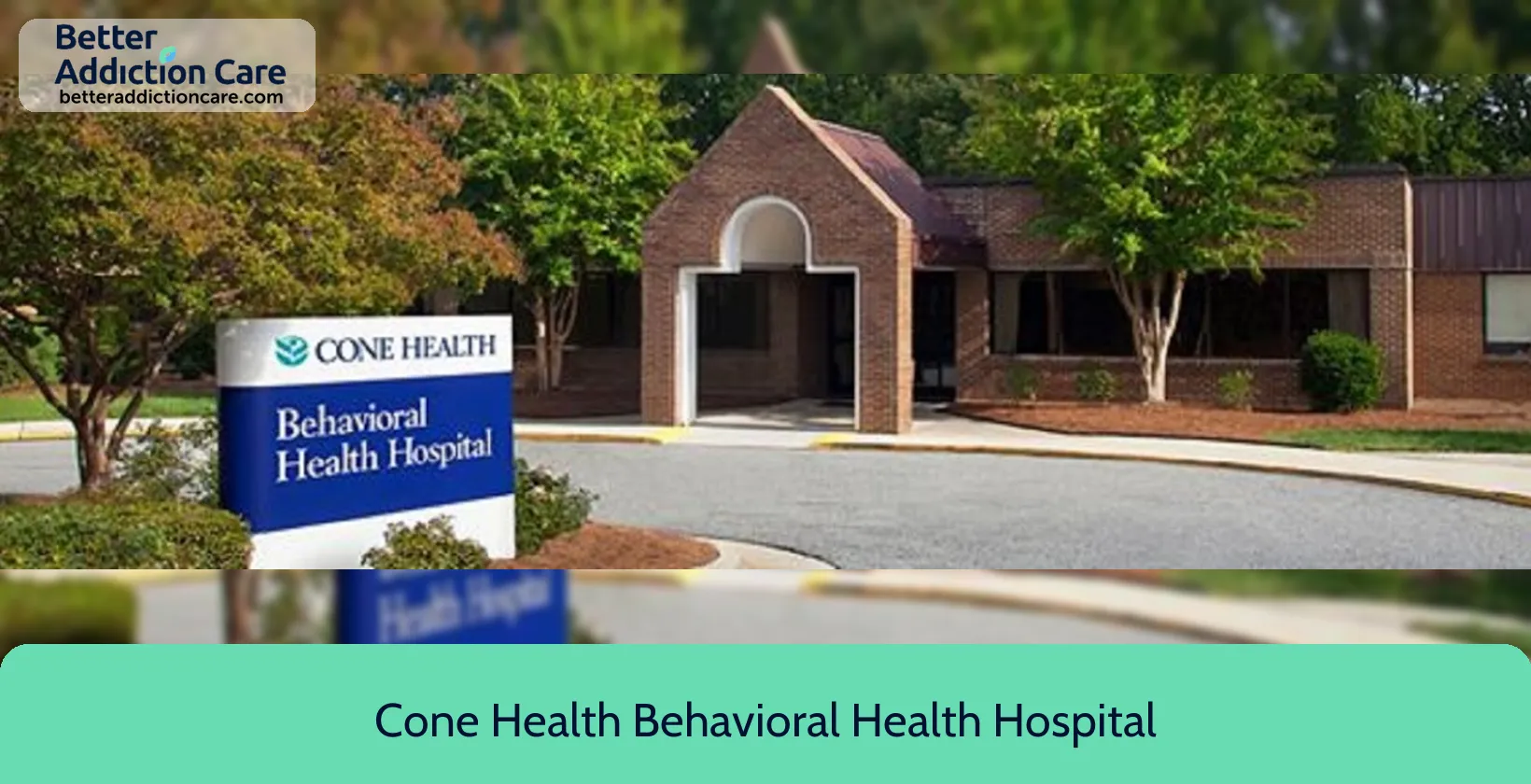Cone Health Behavioral Health Hospital
Overview
The Greensboro, North Carolina-based Cone Health Behavioral Health Hospital helps people with a wide range of mental health problems while they are staying there. The hospital helps people with addictions, anxiety disorders, mood disorders, and PTSD, as well as kids and teens up to the age of 4, as well as adults and seniors. It is the facility's goal to provide caring, personal care in a safe setting.
There are different types of care at the hospital, such as inpatient, outpatient, intensive outpatient, and partial hospitalization programs. Cognitive Behavioral Therapy (CBT), group therapy for anxiety, depression, grief, and drug abuse, and more advanced therapies like Transcranial Magnetic Stimulation (TMS) and Electroconvulsive Therapy (ECT) are some of the ways they treat their patients. Pharmacogenetics testing is also available at the center to make treatments more effective. Cone Health's peaceful setting includes a park that is good for relaxing and play areas, making it a good place to get better. The hospital meets high standards for care and treatment because it is accredited by The Joint Commission.
Cone Health Behavioral Health Hospital at a Glance
Payment Options
- Cash or self-payment
- Medicaid
- Medicare
- State-financed health insurance plan other than Medicaid
- Private health insurance
Assessments
- Screening for tobacco use
- Comprehensive mental health assessment
- Comprehensive substance use assessment
Age Groups
- Seniors or older adults
- Young adults
- Children/adolescents
- Adults
- Seniors
Ancillary Services
- Case management service
- Chronic disease/illness management
- Diet and exercise counseling
- Education services
- Family psychoeducation
Highlights About Cone Health Behavioral Health Hospital
6.82/10
With an overall rating of 6.82/10, this facility has following balanced range of services. Alcohol Rehabilitation: 8.00/10, Drug Rehab and Detox: 6.00/10, Insurance and Payments: 6.53/10, Treatment Options: 6.73/10.-
Alcohol Rehabilitation 8.00
-
Treatment Options 6.73
-
Insurance and Payments 6.53
-
Drug Rehab and Detox 6.00
Accreditations
The Joint Commission:

The Joint Commission's addiction and behavioral health accreditation signifies a facility's commitment to high-quality care. It involves rigorous evaluations and assessments of clinical practices, ensuring effective, evidence-based treatment. Accreditation showcases a dedication to continuous improvement and patient safety, instilling trust among patients, families, and healthcare professionals. It's a mark of excellence in addiction and behavioral health care.
Effective date: 10/24/2015
Registration: 6504
SAMHSA certification for opioid treatment program (OTP):
SAMHSA's Opioid Treatment Programs (OTP) Accreditation is a rigorous recognition process, signaling an OTP's commitment to high-quality care for those with opioid use disorders. It assures patients, families, and the community that the program adheres to evidence-based practices, maintains a safe environment, and employs qualified staff. This accreditation represents a commitment to addressing the opioid epidemic and promoting recovery, symbolizing quality and accountability in opioid addiction treatment.
Treatment At Cone Health Behavioral Health Hospital
Treatment Conditions
- Alcoholism
- Mental health treatment
- Substance use treatment
- Co-occurring Disorders
Care Levels
- Hospital inpatient/24-hour hospital inpatient
- Partial Hospitalization Program
- Outpatient
- Intensive outpatient treatment
Treatment Modalities
- Group counseling
- Cognitive behavioral therapy
- Dialectical behavior therapy
- Integrated Mental and Substance Use Disorder treatment
- Activity therapy
Ancillary Services
Languages
- Sign language services for the deaf and hard of hearing
- English
Additional Services
- Pharmacotherapies administered during treatment
- Mentoring/peer support
- HIV testing
Special Programs
- Clients with co-occurring mental and substance use disorders
- Veterans
- Members of military families
- Clients with HIV or AIDS
- Clients who have experienced trauma
Get Help Now
Common Questions About Cone Health Behavioral Health Hospital
Contact Information
Other Facilities in Greensboro

7.39

7.08

6.76

7.19

7.05

6.56

6.92

6.68
DISCLAIMER: The facility name, logo and brand are the property and registered trademarks of Eleanor Health Greensboro, and are being used for identification and informational purposes only. Use of these names, logos and brands shall not imply endorsement. BetterAddictionCare.com is not affiliated with or sponsored by Eleanor Health Greensboro.

